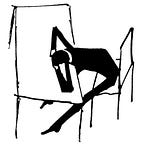Why the Incas Sacrificed Small Children
The psychological motivations at play
The Sacrifice
The Incas called this practice Qhapaq hucha, the practice of sacrificing small children during or after important events such as the death of the Sapa Inca or famine and the likes.
Extremely important to note, is that the children that were chosen for the sacrifice were the purest and most beautiful of all. Moreover, in the months preceding the sacrifice, they were treated like royalty, i.e. they were fed the best food and given the best clothes one could possibly spare. The important bit here is: the Incas sacrificed the best of their best for the gods.
The priests would then take the children up to the mountains. Before the journey, the children would be fed coca leaves so as to make it possible for them to complete the long and arduous trek. Finally, they were killed by strangulation, a blow to the head, or just left out in the cold to freeze.
A possible explanation
For the Inca, being chosen for sacrifice was a great privilege offering great prestige in society. As already mentioned, they sacrificed the best of their best. Naturally one has to ask why.
The easiest way out to this most important question of questions in human psychology would be to delegate it to crudeness and underdevelopment. But this would simply mean to be stuck on the surface.
Let us, therefore, go deep!
The first thing that we must accept has already been established by science for quite some time now and is, that during most of our history, that is to say during prehistory (but by no means excluding the rest) cruelty was the main festive joys of mankind. Hunter-gatherer communities have been documented to be extremely cruel, nay it might be said that in such crude societies it is reckoned a virtue to be insatiable with cruelty. Psychologically speaking we can say that in the act of cruelty the community refreshes itself and throws of momentarily the gloom and despondency of constant fear and caution.
Later, with the evolution of a part of the custom (which consisted of the sole truth to such communities) into religion, the idea that the gods are also delighted and refreshed when they are offered the spectacle of cruelty finally crept into the world, and hence it was established that voluntary suffering, self-chosen torture is meaningful and valuable.
To establish a timeline here, we first discussed the communities at the hunter-gatherer state and now we are discussing the civilization roughly at the level of the Mesopotamian Ubaid period, that is to say, we haven’t yet reached the level when societies were capable of forging some sort of proto-kingdoms.
Custom finally created within the community a practice that corresponds to the idea of voluntary-suffering: all excessive well-being henceforth aroused a degree of mistrust, all hard suffering inspired a degree of confidence. We can find this idea in probably every ancient civilization that has existed (e.g.).
As Nietzsche puts it:
People told themselves: it may well be that the gods frown upon us when we are fortunate and smile upon us when we suffer. They smile because they are amused and put into a good humor by our suffering: for to practice cruelty is to enjoy the highest gratification of the feeling of power.
Nietzsche continues:
Thus the concept of ‘the most moral man’ of the community came to include the virtue of the most frequent suffering, of privation, of the hard life, of cruel chastisement as a virtue that will put the community in good odor with the evil gods and which steams up to them like a perpetual propitiatory sacrifice on the altar.
So by the time civilization reaches state-building capabilities the idea that suffering, privation, and hard life are essential to the survival of the community has already been established for a very long time. It has become part of one’s religion that one regularly offers spectacles of suffering and privation to one’s gods so as to soothe them and gain their favor. This is, even more so the case at times of crises when religiosity always spikes up.
One step further we have finally reached the state of the established empire, therefore also of the Inca Empire, which I think still stands at least one level higher but to be sure below the civilization of the ancient Greek world (perhaps equal to the Hammurabi level?).
Seen in the light of this explanation the human sacrifice of the Incas now makes perfect sense. Again, one sacrificed the best of their best to the Gods so that one may soothe them and gain their favor. It moreover, fits the picture duly that the Incas would do such sacrifices mostly for very important events (for instance the death of their emperor), as at such times one most surely could not afford to offend the gods.
Thanks for reading. As always, constructive criticism and discussion of any kind are highly appreciated.
